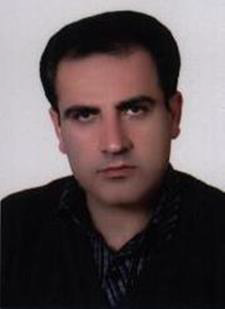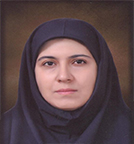History:
The Department of Molecular Medicine started to work in 2006 in the Faculty of Medicine of Shahrekord University of Medical Sciences with the aim of accomplishing educational and research processes with the highest quality to improve community health and was annexed to the Faculty of Advanced Technologies in 2016. Since its establishment, the Department has been offering educational and research PhD programs.
Perspective:
In the coming years, the graduates are expected to expand the boundaries of knowledge in the field of molecular medicine in the region by taking advantage of the integration of basic and clinical research activities, while consolidating and promoting the field's position in the scientific community. They are also expected to substantially raise Iran’s rank in this field.
Vision:
• The main purpose is to train efficient and expert professionals in the field of molecular medicine education and research with respect to the current needs of the society, who are able to:
• Acquire knowledge related to the field in an up-to-date manner and use it to expand the boundaries of knowledge and improve health;
• Provide advanced research methods in molecular medicine to the scientific community with respect to national priorities;
• Scientifically review the related knowledge and scientific findings;
• Teach techniques, methods and concepts related to molecular medicine to the stakeholders; and
• Use creative methods in their studies and research.
• Molecular medicine combines classical research fields such as immunology, biochemistry, medical nanobiology, cellular and molecular biology, genetics and medical disciplines, which provides a unique tool for the prevention, diagnosis and treatment of human diseases as well as translational and personalized medicine.
• The PhD program in molecular medicine is offered in a friendly advanced educational environment and aims to increase the knowledge and skills of the learners in the field of molecular cell biology, metabolic physiology and pathology at the cellular, molecular and organ scale and immediately applicable in research on diseases.
Research priorities:
• Treating diseases;
• Molecular diagnosis of diseases;
• Personalized medicine; and
• Regenerative medicine and the application of cell therapy.
Facilities:
Educational facilities available to the group
A number of HDMI computers, common computer systems, multi-function printers, scanners, copiers, laptop systems, complete office equipment (such as desks and chairs, stamps, punches, tape dispenser and automatic stands, telephones, electrical outlets, cabinets, headphones, etc.) for each faculty member.
High-speed Internet, access to the library and up-to-date scientific resources, whiteboard (n: 5), video projector (n: 5), screen (n: 5), archive of educational contents of the group (educational CDs), separate room for the head of the Department, professors' room (two professors in one room), 3 independent classrooms equipped with video projectors, screens and whiteboards, high-speed internet and other necessary equipment, access to classrooms located in the Faculty of Medicine and Ibn-e Sina halls.
Access to the meeting hall of the Faculty of Advanced Technologies, Faculty of Medicine, Health Research Institute and Ibn-e Sina halls (n: 8), Ibn-e Sina Conference Hall of the University which includes a large hall with a capacity of 500 people, a seminar hall with a capacity of 150 people and 6 workshops with capacities of 20 to 50 people.
• 1 computer room for female PhD students, equipped with 3 computers and a printer
• 1 computer room for male PhD students, equipped with 3 computers and a printer
• Laboratory No. 1 of the Faculty of Advanced Technologies
• Laboratory No. 2 of the Faculty of Advanced Technologies
A memorandum of understanding with the Health Research Institute, which includes three research centers (Cellular and Molecular Research Center, Medical Plants Research Center, and Clinical Biochemistry Research Center)
• Library of Faculty Medicine and Central Library of the University.
• Animal House
• Bioinformatics site equipped with 80 computers
• Secretariat Room
• Pantry
Research facilities:
• Genetic Engineering Laboratory: incubator, cell culture laminar flow hood, refrigerator and freezer, pH meter, several scales.
• Six cell culture rooms with complete equipment needed for cell culture: incubator, cell culture laminar flow hood, invert microscope, bain-marie, refrigerator and freezer, etc. for each culture room.
Laboratories consist of:
• Tissue Engineering Laboratory
• Clinical Biochemistry Laboratory
• Phytochemistry Laboratory
• Drug Development Laboratory
• Devices related to drug development and drug packaging and all kinds of electric mechanical shredders
• Histology and Pathology Laboratory
• Microbiology Laboratory
• Animal House
• Bioinformatics Laboratory
A total of 80 computers are available at two computer rooms. Also, the hardware related to the computer network laboratory, such as switches and routers, are available in sufficient quantities on the two sites.
• Four related research centers affiliated to the University
• Cellular and Molecular Research Center
• Clinical Biochemistry Research Center
• Medical Plants Research Center
• Cancer Research Center
Head of Department:
 |
First name and Last name: Dr. Korosh Ashrafi Dehkordi
Degree of Education: Assistant Professor of Molecular Medicine
Department: Department of Molecular Medicine, School of Advanced Technologies
CV: Scientometrics System
Phone: +98-38-33335651-4
Email: ashrafi.k@skums.ac.ir
|
Faculty Members:
 |
First name and Last name: Dr. Samira Asgharzade
Degree of Education: Assistant Professor of Molecular Medicine
Department: Cellular & Molecular Research Center
CV: Scientometrics System
Phone: +98-38-33335651-4
Email: s.asgharzade@skums.ac.ir
|
 |
First name and Last name: Dr. Vahideh Assadollahi
Degree of Education: Assistant Professor of Applied Cellular Sciences
Department: Department of Tissue Engineering, School of Advanced Technologies
CV: Scientometrics System
Phone: +98-038-33335653
Extension: -
|